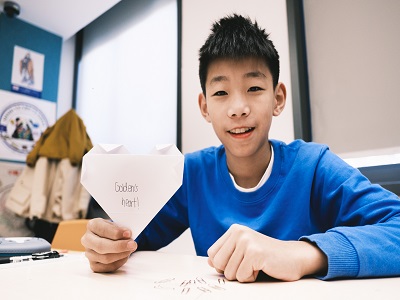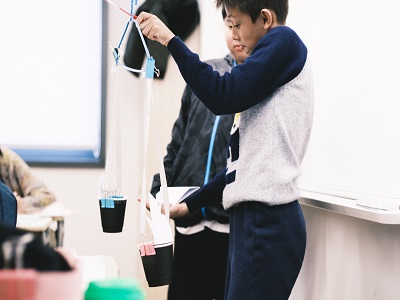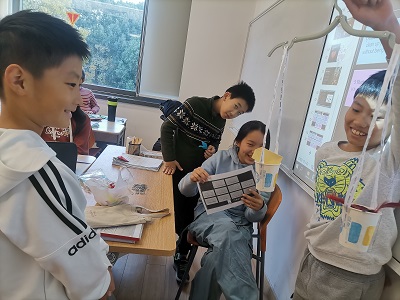-
ABOUT US
-
ACADEMICS
Curriculum Program
Departments
- English
- High School Chinese
- Primary and Junior School Chinese.
- High School Mathematics
- Middle School Mathematics
- Primary School Mathematics
- Music and Fine Arts
- Physical Education
- Physics
- Chemistry
- History and Geography
- Physical Science and Optional courses Department
- Middle School Biology
- High School Biology
- Social Sciences
- Computer Science
- Courses in Primary School
Achievements and Matriculations
College Counseling
Science & Technology Innovation Contest
Subject Competition
-
ARTS
-
ATHLETICS
-
AT SHSID
SHSID ∣ TIMES
PTSA
Club Exhibition
- 龙吟社
- Live 2 Drama
- Choir
- Hip-pop Dance Club
- The Primary School Dance Troupe
- Symposiums Club
- Biology Workshop
- You Shan
- VEX Robotic
- Peking Opera Club
- Baseball Club
- Model United Nations
- The World Scholar’s Cup
- Future Problem Solving Club
- United States Academic Pentathlon
- OM Club
- AMC Club
- Music for Patients
- SHSID Gazette
- Smile Charity
- Cultural Moments
- SciAcademy
- Stem Doge Alliance
- Chinese Debate Club
- IAA
- Mock Trial Club
- Zhengming Club
- Furry Friends
- GT-Racing
- Village Radio
- IMMC Club
- Creative Design and Intelligent Fabrication
- Future City Research Project
- ECOCAP
- AdvocaSEA
- SPDC
- Medishine
- Floorball Club
- Animusic MTC
- Wings Up
- All Booked
Health and Wellness
Campus Safety
Cafeteria Service
-
ADMINISTRATION
-
ADMISSIONS
-
ALUMNI
Alumni Information
Honors Students
- Class of 2025
- Class of 2024
- Class of 2023
- Class of 2022
- Class of 2021
- Class of 2020
- Class of 2019
- Class of 2018
- Class of 2017
- Class of 2016
- Class of 2015
- Class of 2014
- Class of 2013
- Class of 2012
- Class of 2011
- Class of 2010
- Class of 2009
- Class of 2008
- Class of 2007
- Class of 2006
Who Studied at SHSID
SHS Foundation
-
DOCUMENTS
History Department: A Stimulation Game in Grade 6 History Class
On November 29th, during 6th grade history, the students had an interesting activity: simulating a journey through the afterlife! The ancient Egyptians believed that the soul embarked on a journey to the Field of Reeds after death. During this journey, the soul went through many dark and dangerous places, meeting various gods and facing difficult challenges before finally reaching the Hall of Ma’at, where a very important test awaited. The most crucial part of this journey was the 'Weighing of the Heart' ceremony. The Egyptian god Anubis would weigh the deceased's heart against a feather from Ma’at, the goddess of truth and justice. If the heart was lighter or equal in weight to the feather, it meant the person had not committed any wrongdoing during their lifetime. Their soul therefore was pure, and they would be granted eternal life in the afterlife. However, if the heart was heavier, it indicated that the deceased had committed wrongdoings, and they would have to face the terrible punishment of the gods. In this case their heart would be devoured by Ammit, a terrible beast!
The teachers used a hanger and paper cups to create a special scale for weighing the students ‘’hearts’’. The students each folded a heart using paper and took turns answering some questions in front of their classmate, playing the role of the god Anubis. The God would ask questions such as "Do you tell the truth often?” "Have you ever shared with others?", "Have you ever helped others?", etc. If the answer was "No", they would add a paper clip to the heart to increase the weight. The students nervously monitored the scales and were all very engaged in the activity, desperate not to fail the test of Anubis. Through this simulation game and role-play, the students deepened their understanding of the ancient Egyptians' views of life and the afterlife. They got to experience how the Egyptians’ belief system influenced their lives, values and behavior. This gamified learning approach effectively sparked students' interest and contributed to their great enthusiasm for learning about Egyptian history.



(Written by Liu Chen Pictures by Grade 6 history teachers Supervised by David O’Leary Edited by Cong Luo, Bianca Noguera)